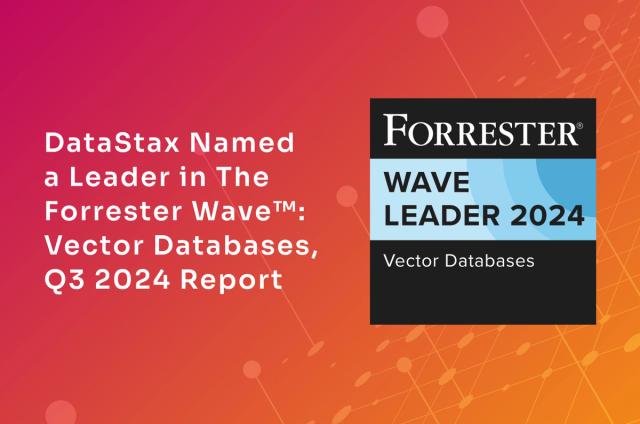Understanding Governance in a Multicloud/Intercloud World

Governance in a Multicloud/Intercloud World
Governance in a multicloud and intercloud world presents its own set of challenges. The following research covers not only the traditional data management governance challenges, but also the financial governance challenges associated with cloud. Without a clear understanding — and plans to address the governance implications — multicloud and intercloud deployments are far more likely to fail, or spiral out of control.
“Comparing Multicloud Management and Governance Approaches”
Organizations adopting multicloud architectures must decide how to transform in the areas of IT service brokering, governance, architecture and operations. This research helps I&O-focused technical professionals analyze the alternatives in each area, and highlights the strengths of each approach.
“Market Guide for Cloud Service Brokerage”
The cloud service brokerage market landscape is evolving as enterprises adopt a multicloud model within their hybrid IT strategy. This Market Guide will help infrastructure and operations leaders select the right cloud service broker for their unique cloud adoption needs.
“Apply Financial Governance to Control Your Cloud Data Management Environment”
Data and analytics leaders using cloud-based data management solutions are often surprised by cost overruns. It is essential to take a comprehensive approach — combining proactive, reactive and product-specific measures — to predictable budgeting for cloud data management environments.
“Beyond the Gathering Storm: Governing Data and Analytics in the Cloud”
The rapid embrace of cloud-based applications and data sources often ignores how seriously they can undermine data and analytics consistency and trust. Data and analytics leaders must reinforce governance to preserve trust in these assets, otherwise cloud investments will fail.
Operating in a Multicloud/Intercloud World
Finally, we turn to operational implications. While much of this research is focused on technical service provider strategies, many of these strategies apply equally to data and analytics leaders who are looking to operate effectively in a multicloud/intercloud world. Of particular interest are new developments in the cloud brokerage market, which will help streamline multicloud adoption.
“Market Insight: Cloud Imperative — Embrace Hybrid Cloud and Multicloud Architecture and Services”
The landscape of cloud adoption is one of hybrid clouds and multiclouds. Product managers at cloud service providers must seize this revenue opportunity.
“What It Takes to Be a Multicloud Managed Service Provider”
Providing cloud managed services is relatively easy if all customers use the same CSP. Unfortunately, most do not. Technology product management leaders for cloud managed service providers (MSPs) must identify, understand and plan for the special requirements of this business before investing in and implementing this technology.
“Market Insight: Multicloud Becomes Essential for Cloud IaaS Offerings”
End-user organizations are increasingly adopting multicloud strategies. Technology product managers at cloud infrastructure service providers must address this trend to ensure that their cloud offerings remain competitive.
“Leverage Cross-Cloud Standards to Compete With IaaS Market Share Leaders”
Infrastructure as a service (IaaS) market challengers are beginning to use cross-cloud standards and multicloud messaging to compete with market share leaders. Product managers of IaaS market challengers must accelerate cross-cloud standardization programs and product enhancement of their multicloud product portfolio.
“Market Insight: Get Ready for Cloud Service Brokers to Subsume Multicloud Tooling”
Product managers responsible for cloud management capabilities — such as governance, service catalog and deployment orchestration — are now in competition with similar services from the cloud service providers. Gartner recommends pivoting to brokerage service capabilities for multicloud adoption models.
“6 Best Practices to Create a Cloud Service Brokerage Offering in the World of Multicloud and Hybrid Cloud”
Cloud service brokerage is an evolving market opportunity for managed service providers. This market opportunity is growing as enterprises adopt a multicloud model within their hybrid IT strategy. Technology product managers must offer differentiated CSB solutions that are targeted at CIOs and IT leaders.
“Market Insight: Embrace the Role of CSBs in the New World of Multicloud and Cloud Infrastructure and Platform Services”
Cloud management platforms have addressed monolithic problems solved historically for a specific area or a specific technology segment such as IaaS or PaaS. To remain competitive, product managers for cloud services must include cloud service brokerage functionality in their strategy.
Acronym Key and Glossary Terms
| CSB |
cloud service brokerage
|
| IaaS |
infrastructure as a service
|
| PaaS |
platform as a service
|
Evidence
1 Gartner’s Cloud Study 2018 (P-18029 Cloud Adoption). The survey was conducted online by an external partner, from October through November 2018. The full study surveyed 1,200 individuals. Of those surveyed, 628 reported that their organization was using the public cloud; and 507 of those respondents reported using more than one public cloud provider.
Results of this study do not represent “global” findings, or the market as a whole, but are a simple average of results for the targeted countries covered in this survey.
Note 1
Hybrid Cloud, Multicloud and Intercloud Taxonomy
There is a lack of clarity in the market around the definition and meaning of these terms. Vendors will often refer to their product as “multicloud” — by which they mean it runs on more than one cloud. Gartner accepts this definition, but finds it incomplete. Below, we articulate a full taxonomy for hybrid cloud, multicloud and intercloud architectures.
- Hybrid Cloud — Refers to implementations that span on-premises and cloud deployments. In “3 Ways That Hybrid Cloud for DBMS Will Drive Your Data Management Strategy,” we further define the subcases of:
- Architecture Spanning Hybrid Cloud — Where components of a single logical deployment span on-premises and cloud.
- Use-Case-Specific Hybrid Cloud — Where different components are segmented by their development life cycle function (for example, development, test and production).
- Multicloud — Where a service or product runs on the infrastructure of more than one cloud service provider, and may also run on-premises.
- Intercloud — Where data is integrated or exchanged between cloud service providers as part of a logical application deployment.
These definitions can also be combined; for example:
- Architecture Spanning Intercloud — would refer to a logical deployment of a single application — where components were deployed on more than one cloud and regularly exchanged data between the clouds.
- Use-Case-Specific Multicloud — would mean that a development environment was deployed in one cloud, and a production environment was deployed in another cloud.
However, you could not have a “use-case-specific intercloud,” because data is not exchanged actively between the environments in a use-case-specific scenario.
Thanks for reading this excerpt from the Gartner report "The Future Of Cloud Data Management Is Multicloud," tune in next week when we'll release another excerpt or click here to download the full asset.




